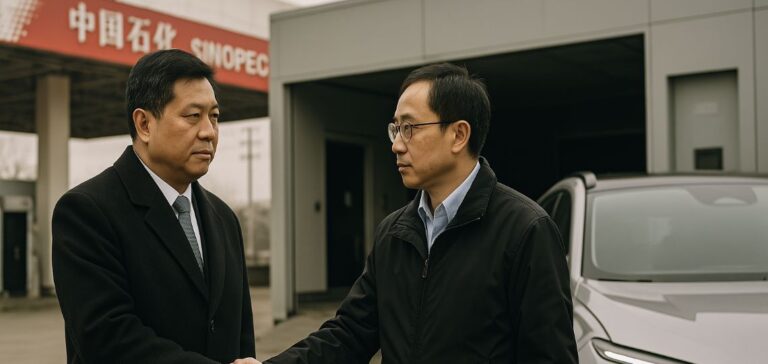China Petroleum & Chemical Corporation (Sinopec) and Contemporary Amperex Technology Co., Limited (CATL) have signed a framework agreement in Beijing to jointly develop a nationwide battery swap network. This collaboration aims to install 500 stations in 2025, with a long-term goal of 10,000 sites, in line with China’s strategy to expand low-carbon transport infrastructure.
The agreement is based on combining Sinopec’s industrial capacity—operating 30,000 energy stations across China—with CATL’s technological expertise as the world’s leading electric vehicle battery manufacturer. Together, they aim to standardise battery swapping and make recharging as fast as conventional refuelling.
Expanding a logistical model for recharging
The initiative covers a broad range of energy services, including integrating battery swap stations into Sinopec’s existing service network and building smart energy microgrids. These facilities will feature solar power generation, energy storage, recharging and battery diagnostics. The infrastructure is designed to meet growing electric mobility needs within China.
CATL has already partnered with multiple automotive manufacturers, including Changan, GAC Aion, BAIC, SAIC, Hongqi, NIO, as well as heavy-duty vehicle producers such as Sinotruk and Foton. This alliance will support a wide variety of battery-swappable passenger and commercial vehicles.
Prospects for integrated industrial development
The cooperation between Sinopec and CATL is part of a broader vertical integration effort focused on clean energy. Beyond physical infrastructure, the two companies will explore capital and equity partnerships to foster innovation and expand productive capacity in battery materials and carbon-free energy systems.
Ma Yongsheng, Chairman of Sinopec, stated that the initiative represents a new step in the company’s energy transition. Robin Zeng, Chairman and CEO of CATL, highlighted the importance of a robust recharging network for widespread adoption of electric vehicles.






















